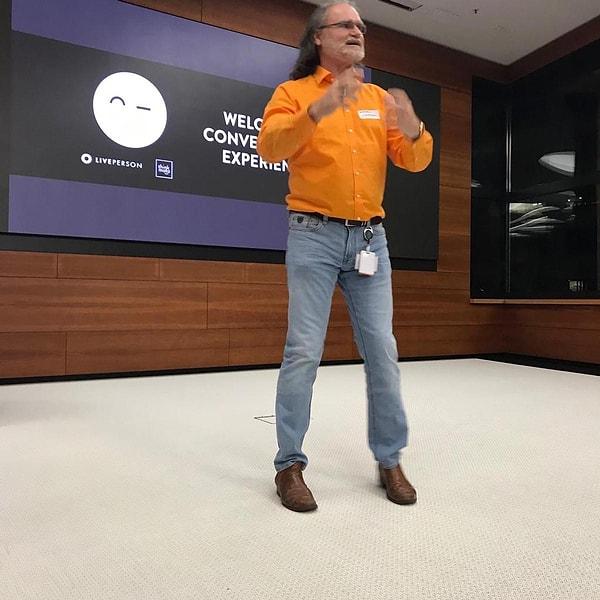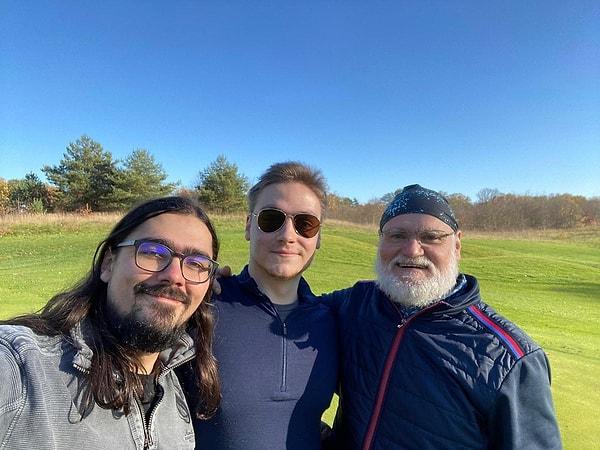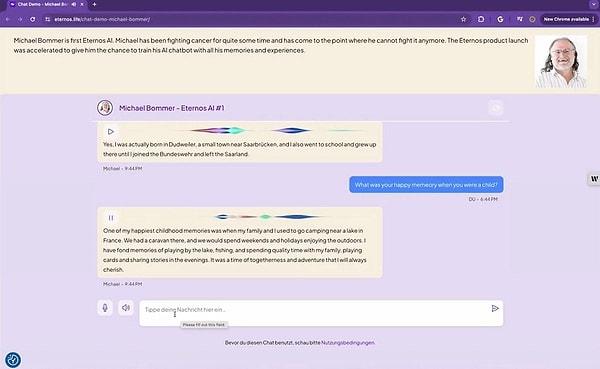Dying Man Given Immortality Through AI, Can Live Forever With His Family
Michael Bommer, a 61-year-old man diagnosed with colon cancer, learned that he had only weeks left to live. During this time, his friend developed a program using artificial intelligence that can immortalize Bommer's memories, reactions, and emotions, allowing him to live forever with his family. Read on for more details.
Facing the last weeks of his life due to colon cancer, Michael Bommer learned that through an AI program developed by a friend, he could forever stay connected with his family by preserving his memories, reactions, and emotions.

How? Using an AI program he developed, Bommer will now be able to transfer his memories into this system.

This means that an AI model resembling him will continue to exist after his passing. After being diagnosed with colon cancer, Bommer started testing this AI program, which he claims reflects him perfectly.
It all began when Bommer publicly shared an emotional note on social media, declaring his time was running out.

This note caught the attention of Robert LoCascio, an old friend and colleague, and founder of the public AI service LivePerson.
Motivated by losing his own father, LoCascio spent a year developing Eternos.life, an AI program that allows people to interact with a digital copy of their loved ones through their voices and words, a groundbreaking concept aimed at aiding those grieving the loss of a loved one to heal and find solace.

Upon hearing about Bommer's unfortunate situation, LoCascio, a long-time collaborator, reached out to his friend and asked a historic question: "Would you like to become immortal in artificial intelligence?"

"I'm not a memoirist. I'm not someone who writes memoirs. I'm a tech guy, I love technology, I've seen what this technology can do in the past, and I'm very excited about this opportunity," said Bommer in a microphone interview, often conducted in the presence of his loved ones.

These interviews ranged from Bommer's personal history to intimate moments like how he proposed to his wife.
"The other part is about recording about 300 vocal sentences. That's what makes it artificial intelligence," LoCascio added.

Bommer read the sentences with specific emotional tones, so much so that his voice sounded very different when saying a sentence like 'close the door' compared to saying 'I love you!'.
LoCascio explained that the artificial intelligence works in three stages: talking about Bommer's life and experiences, allowing his virtual self to advise interactors, and entering a third "creative" mode to tell stories before bedtime or write poignant things like a poem to his wife.

LoCascio noted that no one has participated in such an advanced program as Bommer, and technology is rapidly advancing.
There are other artificial intelligence programs focused on perpetuating people indefinitely, but Eternos.life claims to be the first program using machine learning to reason like a real person.

The company also stated that the program has enough intuition to preserve the values that the person has adhered to throughout their life, essentially allowing the person to live in digital format.
This project is a miraculous ray of hope for Bommer seeking hope and his grieving family.

His wife says, 'Perhaps I'll even have a poem written for my husband.'
"It's very simple. I've had a wonderful life. I have an amazing wife. I wouldn't give up my life or my wife for 15 more years. So, in exchange for my wonderful life, I accept my fate."

'As someone on the verge of death, this feels good.'
Keşfet ile ziyaret ettiğin tüm kategorileri tek akışta gör!


Send Comment